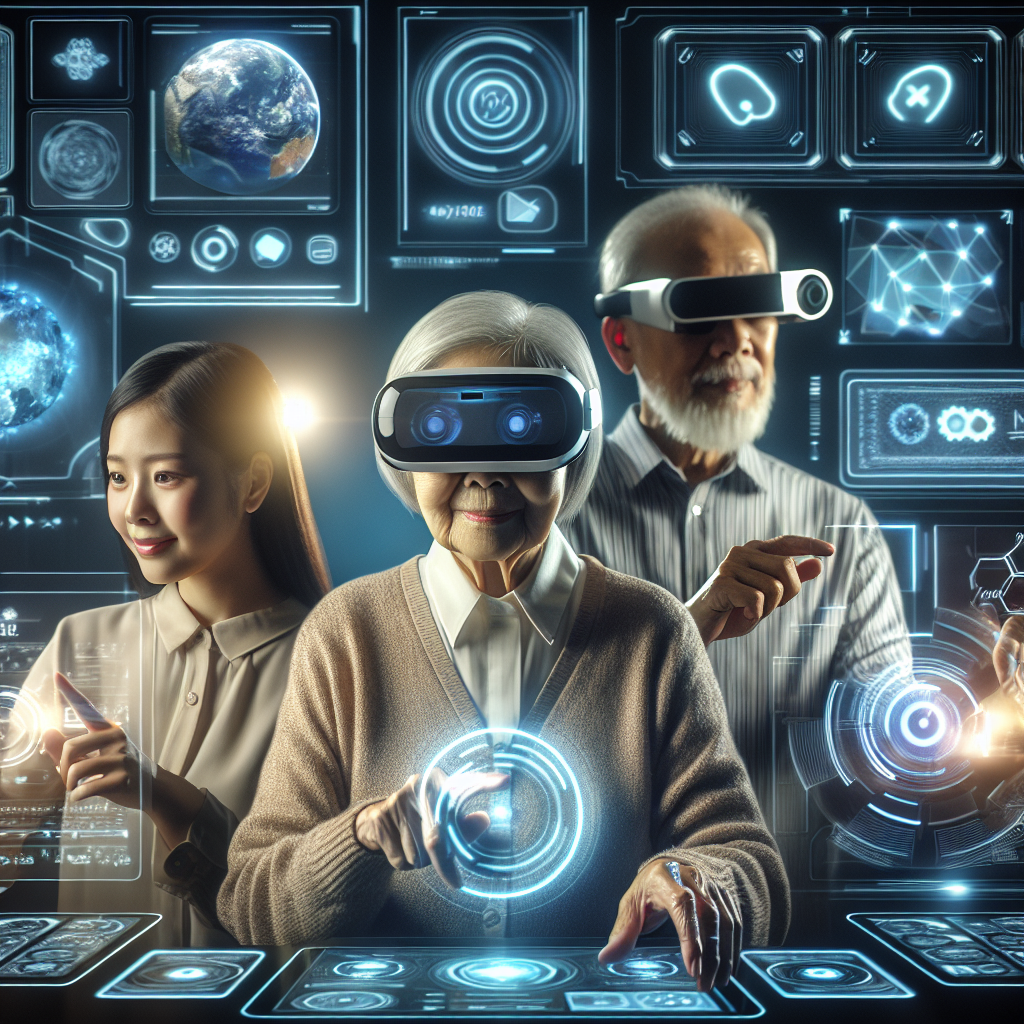The Age of Agetech: Innovations Revolutionizing Aging

As the global population continues to age, the field of “agetech” is rapidly emerging as a key player in revolutionizing the way we approach aging. Agetech refers to the use of technology to enhance the lives of older adults, addressing their unique needs and challenges. From smart homes to wearable devices, agetech innovations are transforming the way we age, promoting independence, health, and overall well-being. In this article, we will explore one recent innovation in the field of agetech that is making waves: virtual reality (VR) for seniors.
The Power of Virtual Reality for Seniors
Virtual reality, once primarily associated with gaming and entertainment, is now finding its place in the world of aging. VR technology immerses users in a simulated environment, providing a sense of presence and engagement. For seniors, VR offers a range of benefits, including:
- Enhanced cognitive function: Studies have shown that VR can improve cognitive abilities, such as memory and attention, in older adults. By engaging in virtual environments that require problem-solving and decision-making, seniors can exercise their cognitive skills and potentially slow down cognitive decline.
- Reduced social isolation: Loneliness and social isolation are significant issues among older adults, leading to various health problems. VR can help combat these issues by providing virtual social interactions and connections. Seniors can participate in virtual group activities, visit virtual museums, or even attend virtual family gatherings, fostering a sense of belonging and reducing feelings of isolation.
- Pain management: Chronic pain is a common issue among older adults. VR has been shown to be an effective distraction technique for managing pain. By immersing themselves in a virtual environment, seniors can divert their attention away from their physical discomfort, providing temporary relief and improving their overall well-being.
Case Study: Rendever’s VR Platform
Rendever, a Boston-based startup, is at the forefront of using VR to improve the lives of seniors. Their VR platform is specifically designed for older adults in senior living communities, providing them with immersive experiences and opportunities for social engagement.
Through Rendever’s platform, seniors can explore virtual destinations, such as famous landmarks, childhood homes, or even places they have always dreamed of visiting. They can also participate in group activities, such as virtual exercise classes or guided tours, fostering social connections and a sense of community.
One case study conducted at a senior living community using Rendever’s VR platform showed remarkable results. Participants reported increased happiness, reduced feelings of loneliness, and improved overall well-being. The immersive experiences provided by VR allowed them to reminisce, connect with others, and escape the limitations of their physical environment.
The Future of VR in Aging
While VR for seniors is still in its early stages, the potential for growth and impact is immense. As technology continues to advance, we can expect to see even more tailored VR experiences for older adults, addressing specific needs and challenges.
Some potential future applications of VR in aging include:
- Physical rehabilitation: VR can be used to create interactive exercises and simulations to aid in physical rehabilitation for seniors. By engaging in virtual activities that mimic real-life movements, seniors can regain strength, balance, and mobility.
- Memory enhancement: VR experiences can be designed to stimulate memory recall and improve cognitive function in seniors with dementia or Alzheimer’s disease. By recreating familiar environments or triggering specific memories, VR can potentially slow down memory decline and improve quality of life.
- Telehealth and remote care: VR can enable remote healthcare services for seniors, allowing them to consult with healthcare professionals, attend therapy sessions, or receive medication reminders from the comfort of their own homes. This can greatly improve access to healthcare and reduce the need for frequent in-person visits.
Summary
Virtual reality is revolutionizing the way we approach aging, offering a range of benefits for older adults. From enhancing cognitive function to reducing social isolation and managing pain, VR has the potential to significantly improve the lives of seniors. Companies like Rendever are already making strides in this field, providing immersive experiences and fostering social connections among seniors in senior living communities. As technology continues to advance, we can expect to see even more innovative applications of VR in aging, addressing specific needs and challenges. The age of agetech is here, and virtual reality is at the forefront of this revolution.

